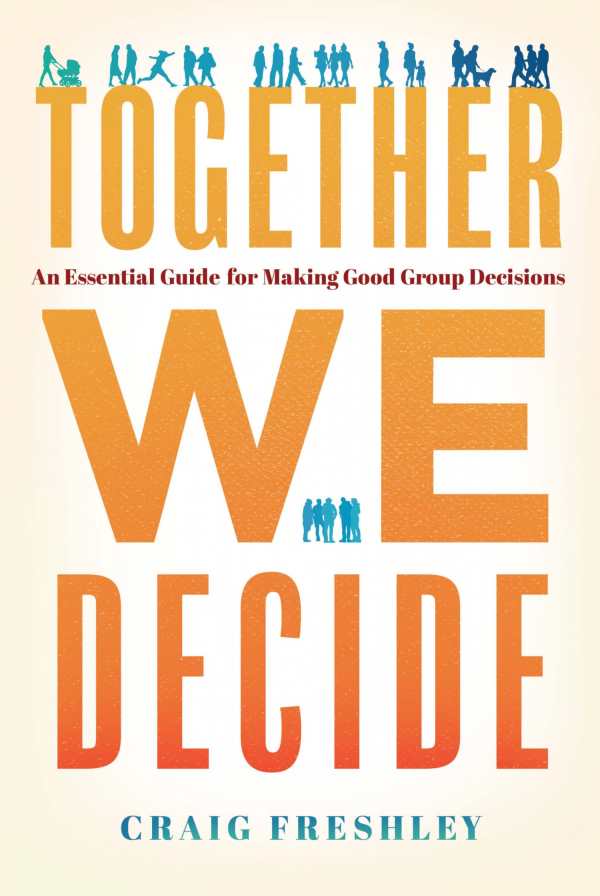Together We Decide
An Essential Guide for Making Good Group Decisions
Together We Decide is an insightful social science book that balances practical and ideological advice for successful group decision-making.
Arguing that achieving consensus, while difficult, is the most effective method of making group decisions, Craig Freshley’s Together We Decide constructs an inspiring foundation for collaborative leadership in business and beyond.
Raised with an attitude of competition at a military academy, Freshley soon recognized the inequality that stemmed from self-centered decision-making in businesses, governments, and communities. In this book, he distills the realities of equitable group decision-making down to their essentials, contending that decisions should result in both net profits and net peace, as with greater respect for each other and improved equity. By embodying Quaker values of inclusion, simplicity, and peace, the book argues, leaders can engage their group members in active participation and achieve more effective solutions.
The chapters move from straightforward material to more complicated information. The book begins by defining pivotal terms, like collaboration culture and servant leadership, and divulging the pros and cons of three main decision-making processes—those of a single leader, of majority rule, and of group consensus. It then delves into the attitudes necessary for approaching consensus-driven decision-making, such as open-mindedness, before delineating useful practices and offering thought-provoking troubleshooting techniques, like asking “What’s the least we need to know to take the smallest step we can?” In conveying information in this logical manner, the book covers a lot of ground, including avoiding sunk-cost fallacies, being antiracist, and cultivating creativity.
Composed of straightforward exposition, the text groups together similar ideas, emphasizing the essentials without extraneous detail to foster clarity of understanding. It uses precise language to navigate complex ideas in a succinct manner. Its diverse examples show the application of the suggested techniques and guidelines at work in various contexts, including those of corporate business meetings, basketball teams, and church groups. Also effective are the book’s environmental analogies, as of pollution’s effect on water systems. Climate change is the dominant example throughout the text, used to exemplify a pervasive problem, the profound consequences of decisions, and the importance of wide-scale cooperation. Streamlined figures and flowcharts are helpful, direct inclusions.
The “Practices” section that makes up the second half of the book includes clear-cut instructions for creating a vision, a mission statement, and a strategic plan; identifying stakeholders and degrees of membership; and determining the best methods of hosting and facilitating a meeting. Such rational guidelines combine with philosophical discourses based on data in both the hard and soft sciences, resulting in comprehensive, tangible, and convincing guidance. For instance, the statement “Attitudes are individual. Culture belongs to the group” is rendered persuasive with the further explanation that groups with commonalities and a sense of belonging are more committed and make more inclusive decisions; examples support these perspectives. At the same time, Freshley’s friendly voice, encouragement, and personal anecdotes make the text more approachable, elevating its sound, applicable wisdom.
Together We Decide is an insightful social science book that balances practical and ideological advice for successful group decision-making.
Reviewed by
Aimee Jodoin
Disclosure: This article is not an endorsement, but a review. The publisher of this book provided free copies of the book and paid a small fee to have their book reviewed by a professional reviewer. Foreword Reviews and Clarion Reviews make no guarantee that the publisher will receive a positive review. Foreword Magazine, Inc. is disclosing this in accordance with the Federal Trade Commission’s 16 CFR, Part 255.

